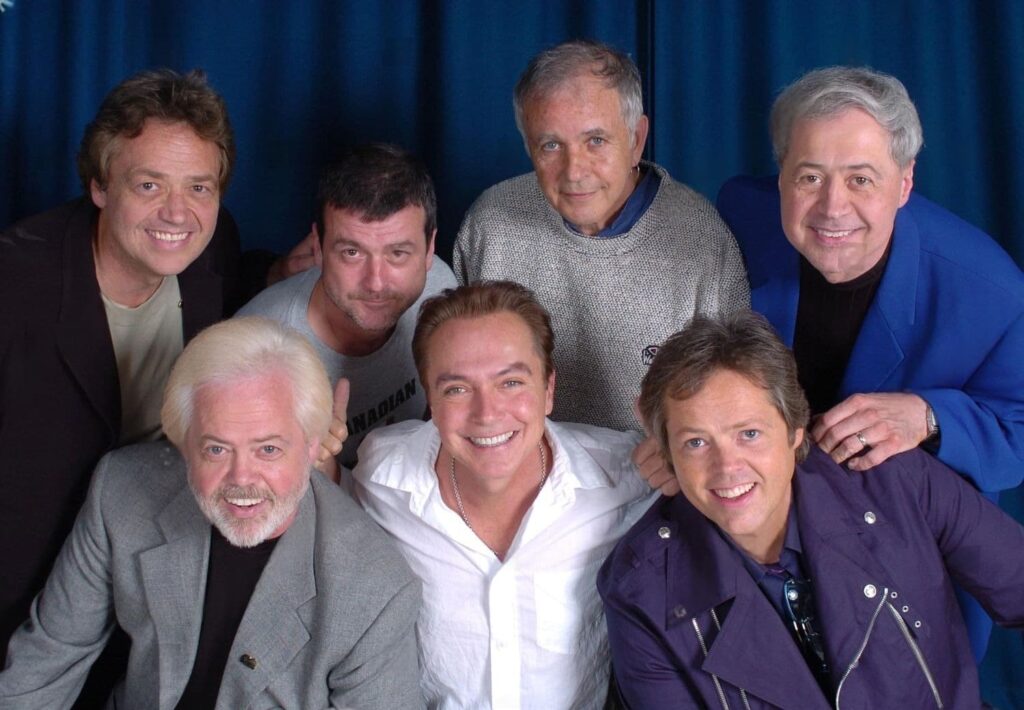
NO ONE THOUGHT THIS WAS A REUNION OF LEGENDS. Yet on a charged night in Nottingham, history came alive as the curtain rose on The Seventies Revival. Jay Osmond, Les McKeown, David Essex, Wayne Osmond, Merrill Osmond, David Cassidy, and Jimmy Osmond—names etched in gold across the soundtrack of a generation—stood together again, not as ghosts of the past, but as living firebrands, ready to ignite the stage.
The atmosphere was electric long before the first note was played. Fans filled the arena, whispering stories of where they had first heard these voices, what these songs had once meant, and what it might feel like to hear them again, live, decades later. But no one could have prepared for what happened when the lights dimmed and the legends stepped forward. It was not just applause; it was a roar, a collective heartbeat, as if the years had folded into themselves.
Jay Osmond tapped his rhythm, Les McKeown’s unmistakable voice soared, and David Essex brought back the fire that once made him a cultural icon. Wayne and Merrill Osmond added depth and power to the harmonies, David Cassidy’s presence stirred memories that had never truly faded, and Jimmy Osmond, out front, tied it all together with energy that felt as fresh as it did fifty years ago. This was not a simple performance—it was an eruption of sound and spirit.
The Seventies Revival did not feel like nostalgia. It felt dangerous, thrilling, like something forbidden had been unlocked. These men were not merely revisiting their past; they were reclaiming it, rewriting it, and handing it back to the world with renewed force. The audience didn’t just listen—they surrendered, swept into a storm of music that blurred the line between memory and reality.
There were moments of tenderness, too—glances exchanged between old friends who had walked the long road of fame, fortune, and fading light. Every chord seemed to carry stories of survival, of battles fought behind the curtain, of scars hidden beneath the spotlight. And yet, instead of shadows, what filled the room was light—bright, fierce, and unforgettable.
Nottingham witnessed something more than a concert. It witnessed a phenomenon: a living testament to the resilience of legends. The Seventies Revival was not about going back. It was about standing tall in the present, proving that time cannot dull the shine of true stars.
For those who were there, it was history unfolding in real time. For the rest of the world, the message was clear—legends never fade. They return, louder, brighter, and stronger than ever, to remind us that music is not bound by time, but carried forward by those brave enough to keep singing.